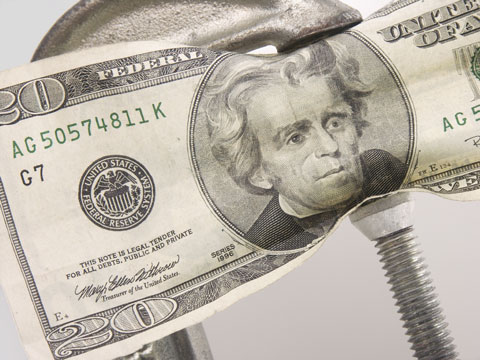The medical device tax is decreasing the flow of funding deals in the medical device industry.
May 13, 2013

The medical device tax is decreasing the flow of funding deals in the medical device industry.
Private equity and venture capital (PE/VC) investing in the medical device industry took a hard hit in 2012. Deals decreased by 13% in value and 15% in number of transactions from 2011. The bright spot, however, was Q4 2012. According to CB Insights, a venture capital database, the medical device industry closed 68 deals in the fourth quarter of 2012, a 41% increase from the previous quarter. But is it enough to keep the industry afloat in 2013?
The medical device industry is poised for growth as the country’s aging Baby Boomers continue to get older and need increased medical care. Funding in this growing area should be easy, right?
That isn’t today’s reality, as new and changing regulations continue to be a hindrance to the industry. The 2.3% medical device excise tax will continue to shrink profits in the industry, which is not appealing to investors and is decreasing deal flow.
So how is 2013 shaping up? According to data collected from Capital IQ, Q1 2013 brought with it 32 closed private placement deals at an average transaction size of $13.4 million. By comparison, Q1 2012 brought 45 deals at an average transaction value of $10.9 million. Fewer deals closed in Q1 2013, but they were of greater average value than Q1 2012.
The deal environment is anything but predictable. The slightest hiccup, like changes in the economy or a new government regulation, can affect whether an industry receives funding and how much, even if it has growth potential. This is a hard pill to swallow for medical device companies today. For now, we’ll keep an eye on funding trends and hope that 2013 is a prosperous year for the industry.
Is your medtech company having a difficult time getting funding? Got advice for those companies in need of funding? Tell us about your funding experiences in the comments below.
Mitchell Kopelman is the partner in charge of the technology and life sciences practice at Habif, Arogeti, & Wynne (Atlanta). He focuses on helping medical device companies with R&D tax credit studies, mergers and acquisitions, and proactive tax and accounting planning. He also works with companies as they expand globally or enter the United States. Kopelman graduated from Georgia State University with a bachelor’s degree in accounting. He can be reached at [email protected] or call.
Ori Epstein is a tax manager in Habif, Arogeti, & Wynne’s technology and life sciences practice. He regularly speaks at medical device industry conferences on topics such as the excise tax, business trends within the medical device industry, and tax planning and preparation for medical device companies. Epstein graduated from the University of Georgia with a bachelor’s degree in accounting and a master’s of accounting with a concentration in tax. E-mail him at [email protected] or call 770-353-7110.
Related Content
The Three Cs That Can Get Your Next MedTech Venture Funded
Six Benefits and Risks Of Crowdfunding Your Startup
10 Rookie Errors to Avoid When Looking to Raise Money
VC Funding Is Not Worth MedTech’s Time, says Chris Velis, MedCap Advisors
The State of R&D in Medtech
You May Also Like


